Giro d’Italia 2018: From Jerusalem to Rome, five things to look out for
All eyes will inevitably be on Chris Froome when the race begins in Israel, but might Team Sky's dominance of the past two Grand Tours be disrupted?
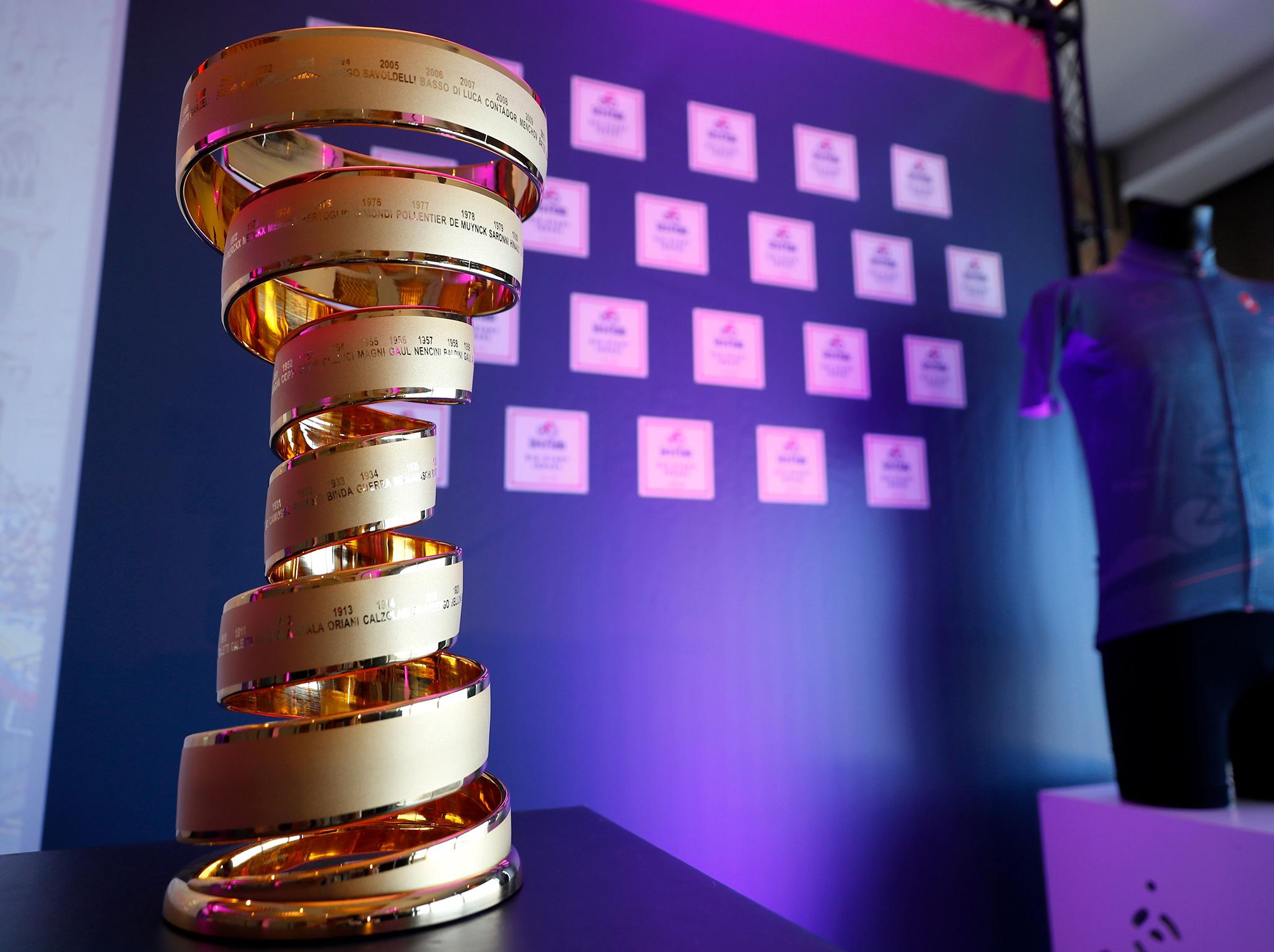
Each Grand Tour is different but the start to the 101st Giro d’Italia is like nothing before; three stages in Israel weaving around Jerusalem’s ancient walls, through the cosmopolitan Tel Aviv, up the rugged Mediterranean coast line and down through the exposed Negev Desert to the Red Sea.
This will be the first Grand Tour to start outside Europe, before the whole shebang packs up and returns to familiar Italian terrain on the first of three rest days. Race organisers believe the move to the Middle East is a bold step which will show and grow cycling’s global appeal, while Israel is desperate to successfully pull off with what will be the biggest sporting event the country has ever hosted and show itself off to the world.
Moving the Grande Partenza to Israel has drawn criticism, but organisers point to the success of cycling’s previous jaunts; in the past the Tour de France in particular has demonstrated a habit of sweeping excitement through new places as locals embrace the spirit of an international sporting event rolling past their porch.
Much of the pre-race interest has inevitably been overshadowed by Chris Froome‘s participation, with his case regarding excess levels of Salbutamol during last year’s Vuelta a Espana triumph still unresolved. But beyond the debate around Froome there is an intriguing bike race, with changes in the rules which could undermine the dominance of Team Sky and open up the field.
Here are five things to look out for:
Sport and politics
There have been plenty of controversies in the build-up. When Israel was announced as the start point, several prominent groups spoke out against cycling’s endorsement of a state accused of human rights abuses in its conflict with Palestine. The Boycott, Divestment and Sanctions movement led accusations of a “sports-washing of Israel’s occupation and apartheid”. Meanwhile the Israeli government itself was angered when Giro organisers announced that the opening stage would begin in ‘West Jerusalem’, a sensitive issue to clumsily step into.
There have also been underlying security concerns, although they were dismissed by last year’s winner, Tom Dumoulin: “I can’t say that I’m more afraid than riding on the Champs Elysées. Enough has happened in Paris in recent years,” he said. This is the backdrop against which the Giro will begin; criticism, protest and an underlying nervousness. Ultimately its success or otherwise will determine whether or not cycling’s high profile events continue to eagerly spread beyond their traditional borders.
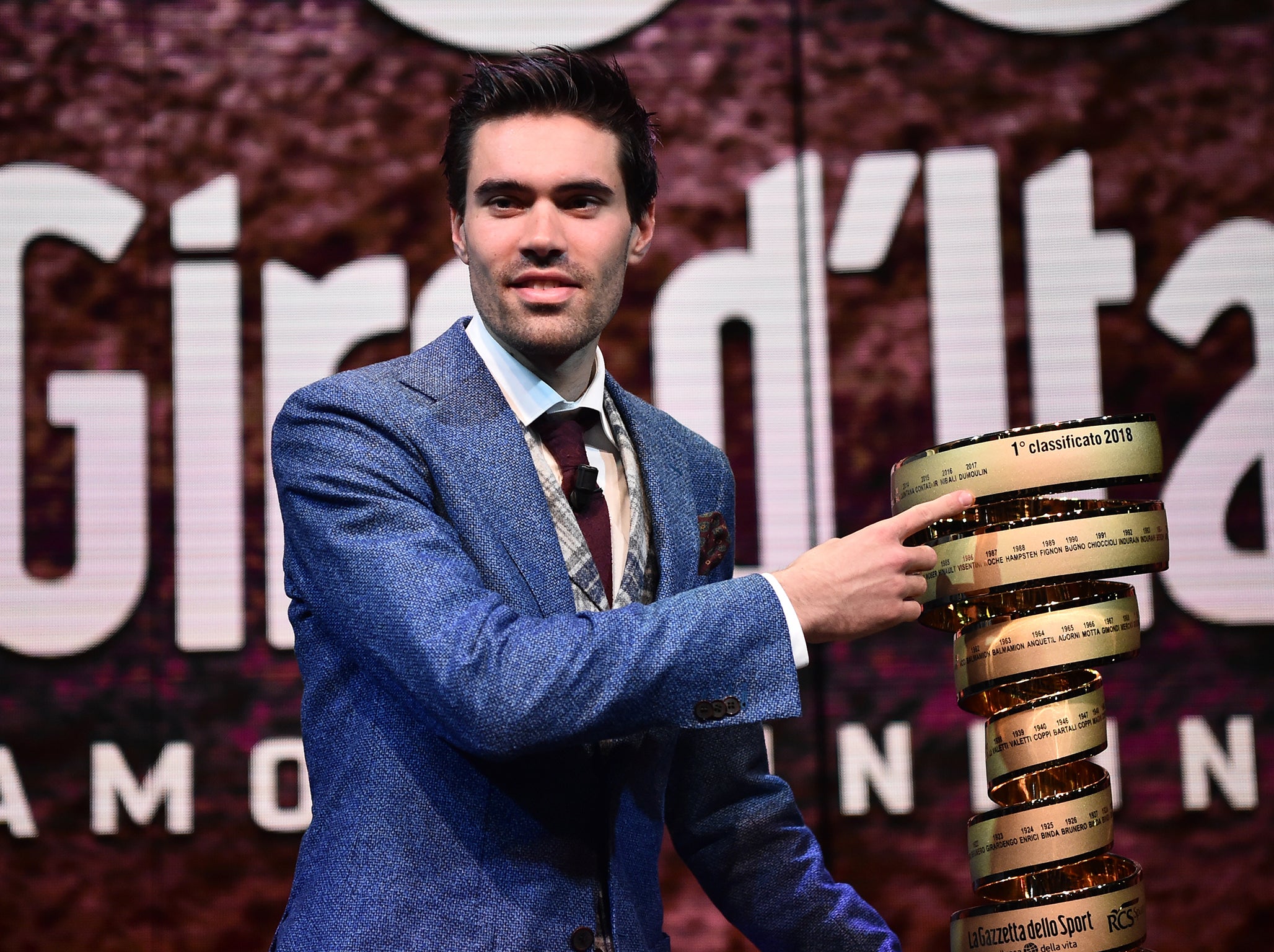
Froome’s shadow
As feared several months ago, the “nightmare” scenario imagined by world cycling’s president David Lappartient will be realised when Chris Froome rolls down the start ramp of a Grand Tour with his adverse analytical finding still looming large. The four-time Tour de France champion was courted by the Israeli government, which may now regret spending a reported £2m to secure the 32-year-old’s participation.
Froome continues to peddle the line that he is determined for the case to be resolved “as soon as possible”, something which seems harder to believe with each passing month. He seems intent on winning his first Giro to complete the Grand Tour set and will worry about potentially being stripped of the title later.
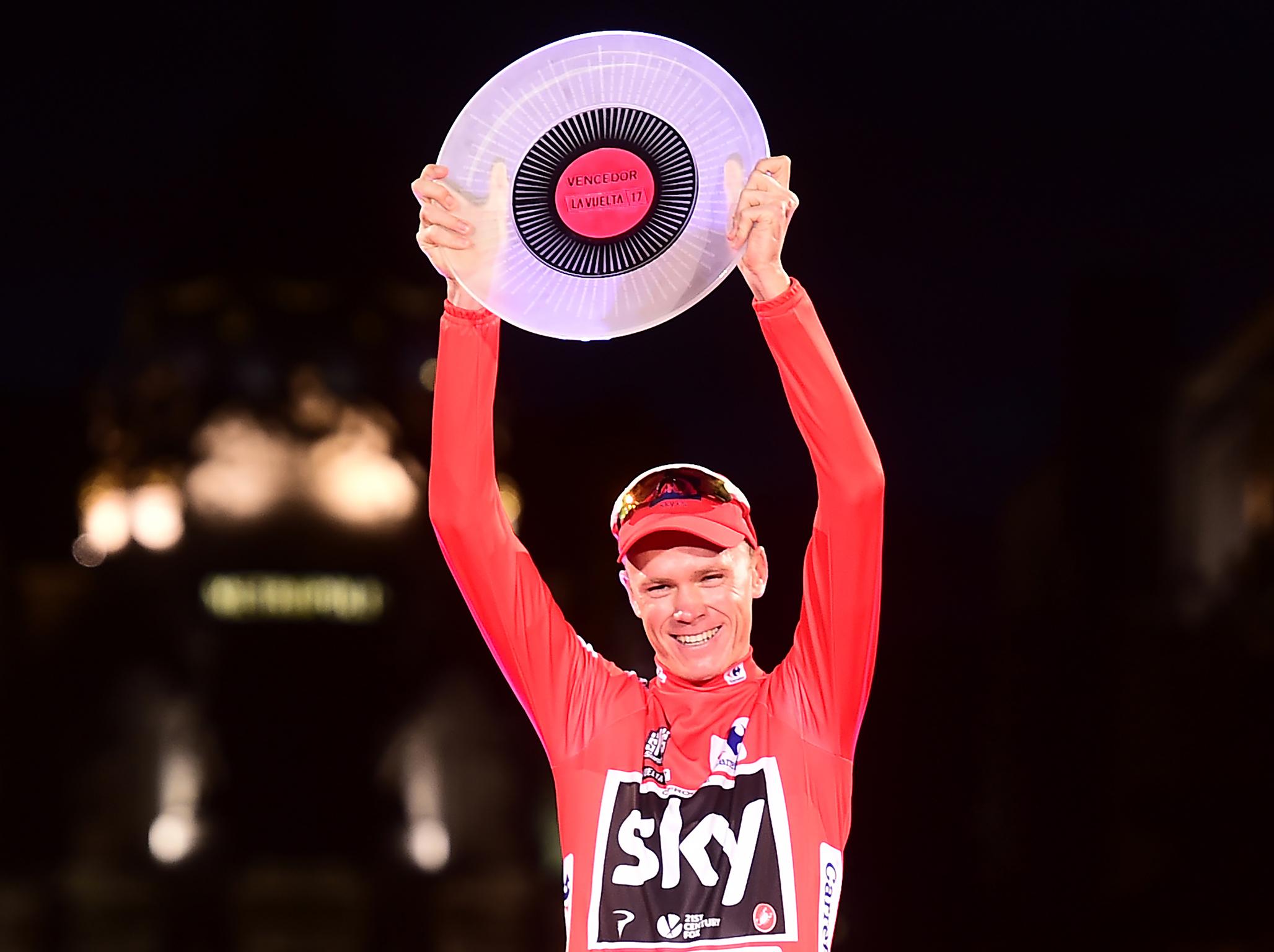
Nine into Eight
The number of riders in a Grand Tour team has been reduced from nine to eight in order to cut the size of the peloton from 198 to 176 to improve safety for all the competitors. It may sound like a small change, but a potential side-effect is the weakening of Team Sky’s dominance which took Froome to the Tour de France-Vuelta a Espana double last year, as his cabal of defenders and deflectors is shrunk.
As the days go by and the peloton slims, fans may get the chance to enjoy compelling head to head battles in northern Italy between the leading protagonists like Froome and the former Vuelta winner Fabio Aru, with fewer domestiques to come to their rescue.
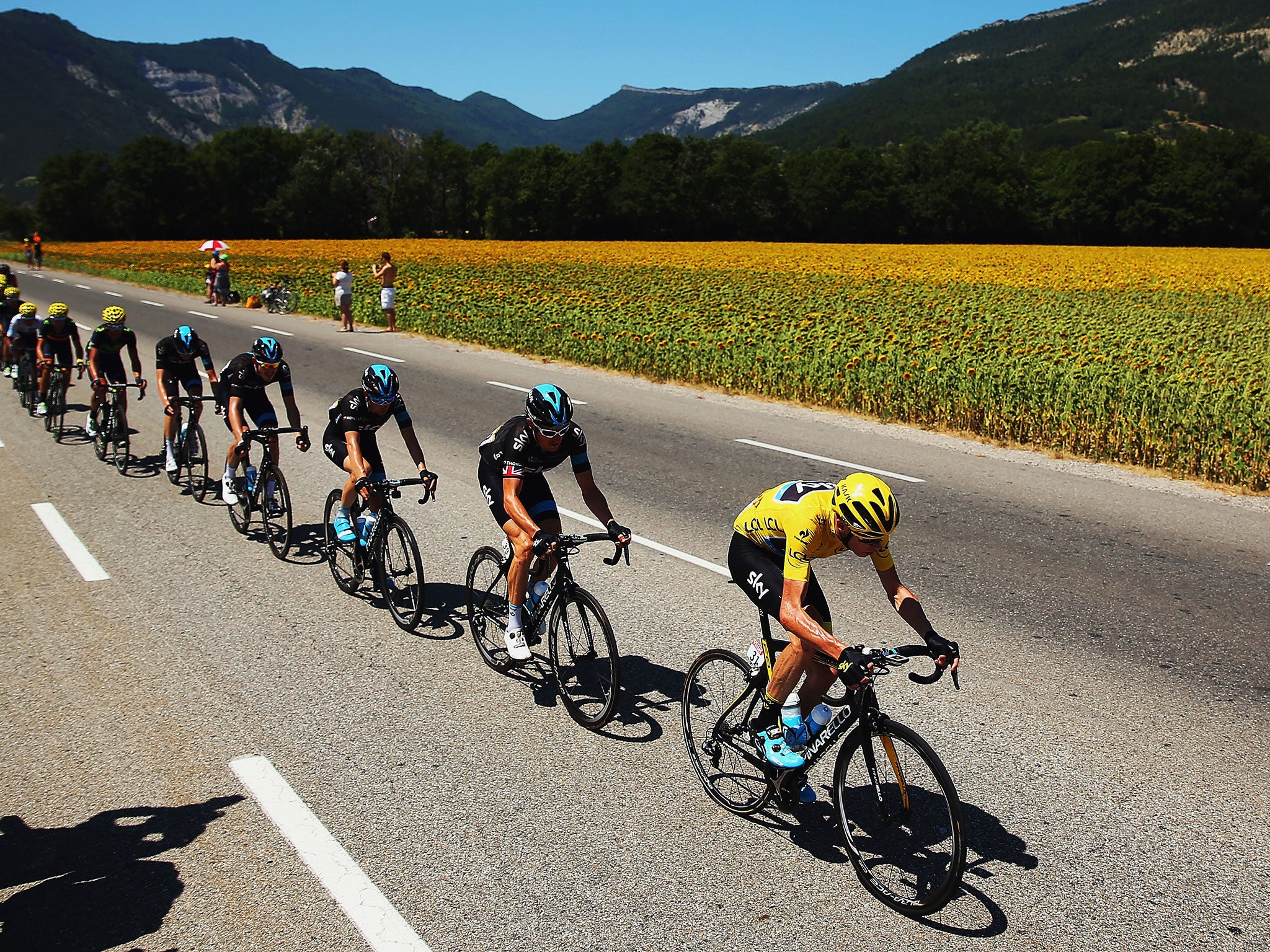
Etna and the Zoncolan
Those who complete the three Israeli stages will head to Sicily for another set of three before the race switches to the mainland and heads north towards the Alps. Race director Mauro Vegni has adamantly rejected criticisms that this is not as testing a route as years gone by, pointing to several intimidating climbs, particularly in the final week.
Two summit finishes certainly stand out: Mount Etna proved a disappointment in last year’s edition but this time the peloton will face the more gruelling route up the volcano featuring a brutal section of around 14 per cent gradient; and the Zoncolan, arguably the most draining climb in Europe, a relentless 10km drag at an average 12 per cent gradient touching 22 per cent in places. Both would be prime locations for one of the leading lights to deliver a statement stage victory.
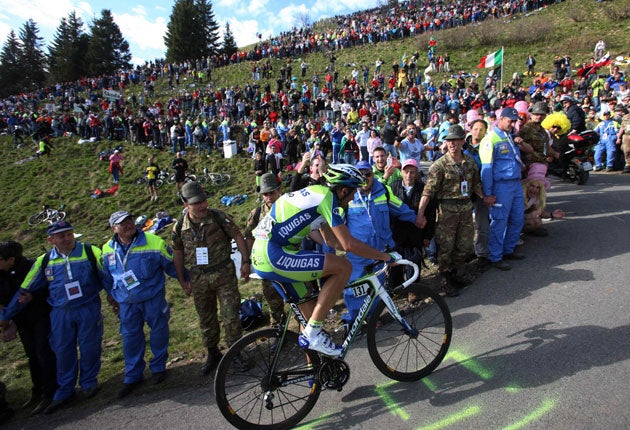
Armstrong’s appearance
“I was asked whether I intended to take part in the event, and the answer is yes,” said Lance Armstrong last week. “The opportunity to come to Israel and take part in such an iconic event is simply insane.” Exactly who asked him is unclear, after the Israeli tourism ministry and the race organiser RCS Sport confirmed they had not invited the disgraced rider in any official capacity. But it seems the man who symbolised cycling’s darkest era will in attendance, a reminder that the sport continues to battle its demons.
Join our commenting forum
Join thought-provoking conversations, follow other Independent readers and see their replies
Comments
Bookmark popover
Removed from bookmarks